Look My Friends, You Don't Have To Be An Omnivore or Carnivore To Get All Your Nutrients And Enjoy All Your Favourite Foods!
My reasoning behind becoming a pescetarian/lacto-ovo vegetarian and why I encourage people to live a vegatarian or vegan lifestyle!
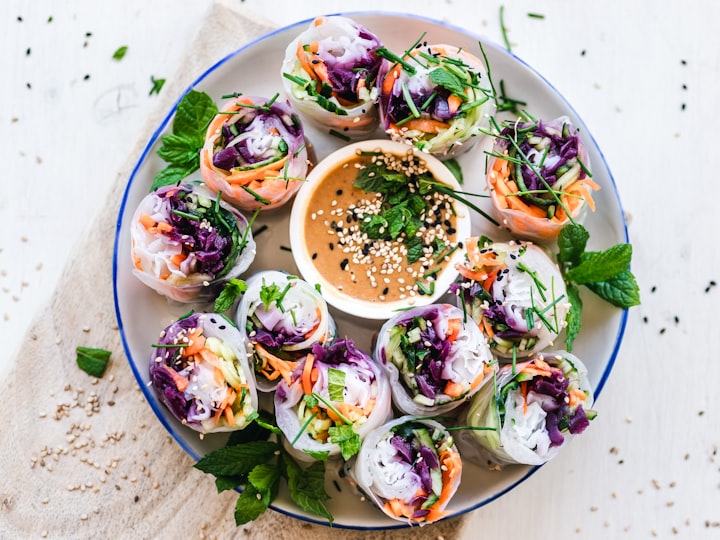
Let food be thy medicine and medicine be thy food. - Hippocrates
During my adolescence, I had one goal to pursue for the rest of my life: to be some sort of vegetarian and then be a vegan when I'm mentally, physically and emotionally ready! I believe being a vegetarian or vegan is the most beautiful thing in the world, because it reduces your vulnerability to certain ailments like heart disease, multiple types of cancers, diabetes and can be a weapon to mental illness for some people.
In December 2020, I decided to be a vegetarian for both political and personal reasons. I became disgusted with certain animals being killed, food contamination that lead to the COVID-19 pandemic, as well as the bats that were being slaughtered and used for food at the wet market in Wuhan, China. I've also been living with mental illness since I was 11 years old. I've struggled with binge eating issues during the youth and I was constantly on a search for a way to heal spiritually, physically and mentally. Eating more plant based foods and has reduced my chances of getting mood swings, helped me lose weight, increased my energy levels, has improved the condition of my skin and has helped me manage my autism/anxiety-related symptoms better.

I'm no stranger to vegetarianism and veganism. As I've stated in previous food-related Vocal stories, I've been eating vegetarian and vegan foods since I was a child, even though I was not considered a "vegetarian" or "vegan". When my brother and I were children, my dad starting experimenting with vegan/vegetarian cuisine and would also eat vegetarian food as a means to replace "unkosher meat dishes". I loved vegetarian and vegan cuisine so much that I eventually dreamed of being a vegetarian or vegan. My parents never condoned the full-on vegetarian or vegan diet, because they believed I wouldn't get enough nutrients in my body. Since I have control of what I keep in my kitchen and the degree of my parents flexibility changed, I chose to be a vegetarian for life. I don't want to eat red or white meat and I believe that the vegetarian lifestyle has been beneficial for both my mental, financial, spiritual and physical wellbeing. I no longer buy or keep red or white meat in the house. Once in a blue moon, I purchase and keep seafood in the house, but I try not to buy it as frequently due to the high prices. My diet primarily consists of eggs, dairy products, tofu, beans/legumes, nuts/nut butters, grains, tubers, natural sweeteners/sugars like stevia and maple syrup, vegetables, fruits/berries and water! I'll permit myself to have refined sugar or fried food once-twice a week. I don't regret making the choice to live the pescetarian/ lacto-ovo-vegetarian lifestyle!

As most of you might already know, there are various types of vegetarian lifestyles to explore and choose from. Depending on what types of foods you want to keep, eat sparingly or avoid all together, you might want to do some thorough research on the different kinds of vegetarian diets and then determine which ones work best for you and/or your family. You can also use this Vocal blog as a resource and source of inspiration. Some of the vegetarian diets include more to zero animal products however, only a few of them include red and/or white meat.
For more information on the multiple vegetarian diets that people around the world follow, read the descriptions on the 6 most common vegetarian and vegan diets that people follow below! Hopefully, this will give you a basic idea on what's expected for each diet and maybe this will be your guide to starting a vegetarian or vegan diet.
1. Flexitarianism (also known as Semi-Vegetarianism)
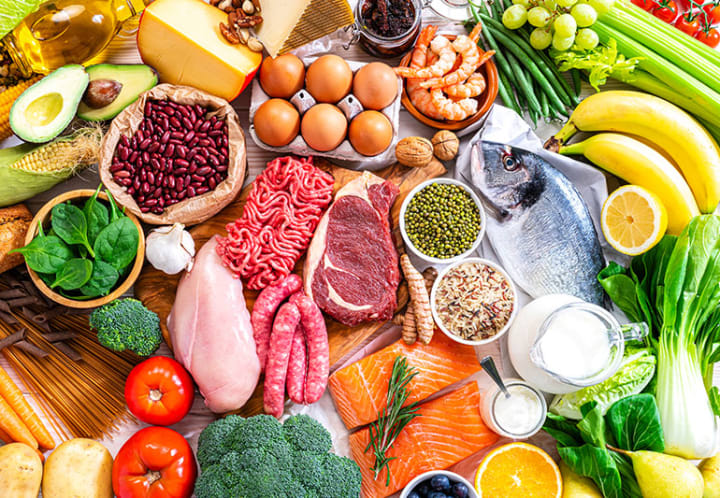
Flexitarianism, also known as semi-vegetarianism is a form of vegetarianism that enables people to include some animal products along with more plant-based foods into their diets. The flexitarian diet is more lenient than other vegetarian diets and there are no set rules on the number of calories and macronutrients someone should eat. The flexitarian diet was created by dietitian Dawn Jackson Blatner to help people gain the benefits of eating vegetarian, while consuming animal products in moderation.
Foods to eat on the flexitarian diet are poultry, dairy products, eggs, beans/legumes, tofu, fish, vegetables, fruits and other nutritious foods. To achieve optimal health, flexitarians should eliminate refined foods that contain added sugar and salt, or eat these food products sparingly.
Since there are no strict rules to follow on the flexitarian diet, flexitarians are not considered to be "vegetarians" or "vegans". Being a flexitarian is a good choice for someone who is looking to eat more nutritious foods but doesn't want to eliminate animal products. If you're following a well-planned flexitarian diet, you shouldn't have any concerns about getting nutritional deficiencies like iron and zinc deficiencies. Other than providing the common physical and mental health benefits, flexitarianism is also beneficial for the environment since it decreases greenhouse gas emissions and land/water use. The demand for harvesting fruits and vegetables will increase which will require fewer resources than raising animals for humans to eat.
2. Pollotarianism
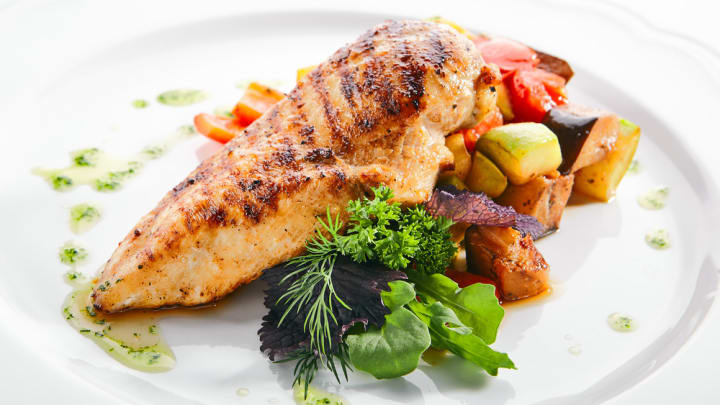
Pollotarianism is a form of semi-vegetarianism that is slightly more restricted than flexitarianism. Pollotarianism is the practice of eating poultry, dairy, eggs, fish, seafood and other plant-based products and eliminating red meat and pork. A pesce-pollotarian is a pollotarian that consumes seafood and fish. Being a pollotarian can be a stepping stone for someone who chooses to be a vegetarian for both personal health, political, religious/cultural/spiritual and environmental reasons.
Pollotarianism provides similar health benefits to flexitarianism and is sustainable for weight loss. It has no strict guidelines on how much poultry a person should eat however, the guidelines vary from person to person based on their circumstances.
3. Pescetarianism
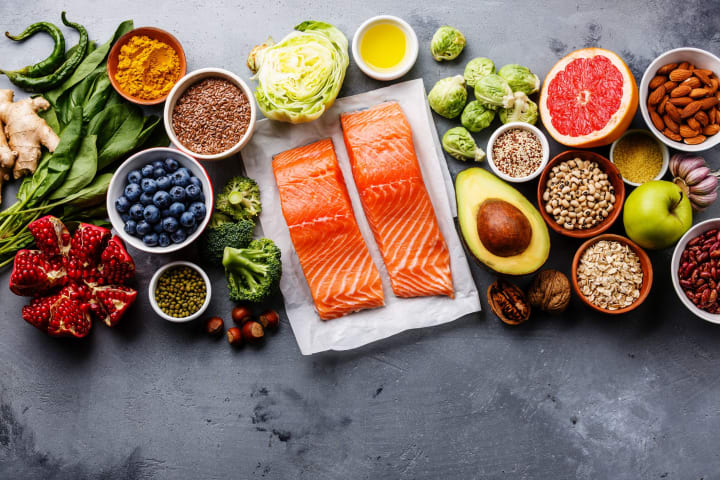
Pescetarianism is the practice of eating no animal products except for dairy, eggs, seafood and fish with low-zero amounts of mercury. Just like pollotarianism and flexitarianism, the diet encourages people to get the majority of their nutrients from plant-based food products like grains, fruits, veggies, etc. The kinds of seafood and fish that is allowed on the pescetarian diet are shrimp, crab, salmon, fish sticks, halibut, scallops and other low-mercury sources of fish. Some types of fish may get mercury from their environment, so it is crucial that people limit their intake. Pescetarianism provides similar health benefits to both the flexitarian and pollotarian diets.
Although being a pescetarian can be beneficial for optimal physical, mental and environmental health, it can still provide somewhat of a risk for the environment. The heavy metals and pollutants in marine fish is a worldwide problem. 92% of fish that is eaten by humans is marine fish, primarily from coastal fisheries, so there is a likelihood of contamination.
Mercury is present in the atmosphere and bodies of water, which is the reason why most fish may be a source of mercury. According to the U.S. Food and Drug Administration (FDA), mercury is does not display a risk for most humans. That being said, they advise certain people like pregnant women, nursing mothers and young children not to consume specific kinds of fish. The fish to mainly avoid are tilefish, swordfish, king mackerel and shark because of its high mercury content.
4. Lacto-Ovo Vegetarianism
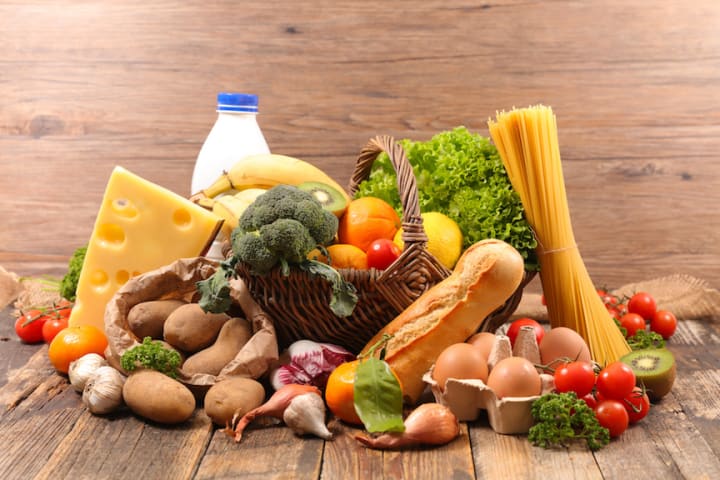
Lacto-ovo vegetarianism is the practice of avoiding most animal products except for eggs and dairy products. A vegetarian who consumes no animal products except for dairy is a lacto-vegetarian. On the other hand, someone who eats no animal products except for eggs is an ovo-vegetarian. In addition to eating eggs, dairy or both, these types of vegetarians consume mostly plant-based foods and limit their refined sugar, salt, saturated and trans lipid intake. Just like most forms of vegetarianism, lacto-ovo vegetarianism can have the same benefits and risks for humans.
5. Veganism
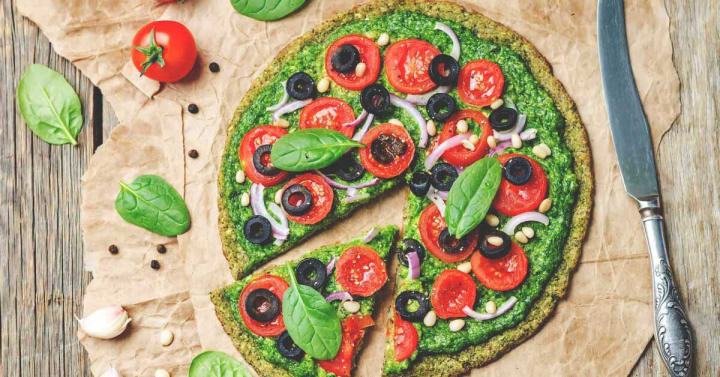
This is where it begins to be pretty extreme! Veganism is the practice of avoiding all animal products into ones diet. The vegan diet consists of nothing but plant-based foods like vegetables, fruits, tubers, grains, beans/legumes, soy products, nuts/nut butters, seeds and healthy oils/fats. If you include refined vegan foods like frozen meals and desserts with added sugars, you will lose all the health advantages of living a vegan lifestyle. If you consume mostly whole, plant-based foods on a vegan diet, the risk of getting nutritional deficiencies is lower.
People choose to become vegans for a variety of reasons: concerns regarding animal cruelty, dietary restrictions, cultural/religious reasons, spiritual beliefs and personal health reasons that vary from person to person. Even if veganism provides a number of health benefits, there are also quite a few downsides. Not only will the chance of experiencing nutritional deficiencies and other health concerns be higher, it could possibly lead to social isolation and depression. If you decide to follow a vegan diet, do some thorough research and consult with your health care provider if you have a medical condition.
6. Raw Veganism
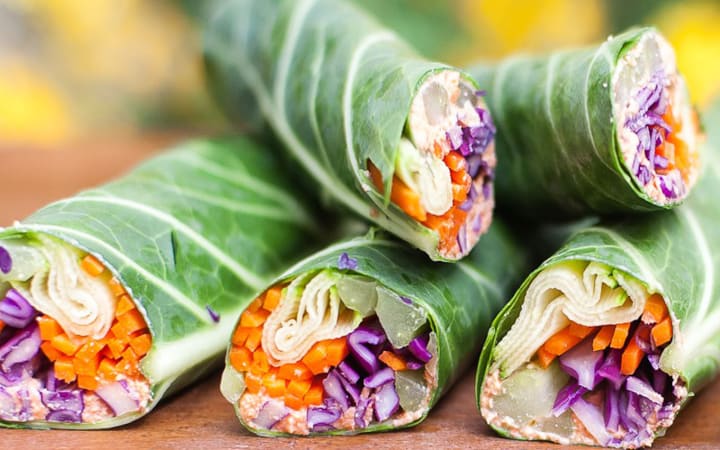
Raw veganism is the most extreme and restricted practice of vegetarianism. This form of vegetarianism is not new however, it has gained popularity over the years. It has existed since mid-nineteenth century when Presbyterian minister and dietary reformer Sylvester Graham encourage it as a means to avoid illness. Raw vegans consume no animal products and only eat raw plant-based foods like fruits, vegetables, nuts, seeds, sprouted grains and legumes. This diet also tends to be high in natural foods. No food is to be cooked at temperatures higher than 104-118 degrees Fahrenheit (40-48 degrees Celsius).
People decide to be raw vegans primarily for health reasons, but there could be many other reasons why they choose to live the raw vegan lifestyle. They tend to believe that raw and minimally cooked foods are more wholesome than foods that are cooked. Raw vegans prepare their food by blending, juicing, soaking, sprouting and dehydrating. They don't bake, fry, boil or microwave their meals.
Although the raw vegan diet has numerous health benefits, it also has many health effects. It may deteriorate bones and muscles, promote tooth decay, may reduce fertility and can increase the likelihood of nutritional deficiencies. If one follows a vegan diet that is well planned, the chances of experiencing health problems will be lower than if it wasn't well planned.

To conclude, all of the vegetarian and vegan diets provide multiple health benefits for peoples mental, physical, spiritual, emotional, psychological, cognitive, as well as providing many health advantages for the planet. Please remember that I'm only talking from my personal experiences and this article is not meant to strictly persuade people to following any vegetarian or vegan lifestyle. If you have any additional health challenges and have any questions after reading this post, please consult with your nutritionist, doctor and/or nurse before embarking on any vegetarian or vegan journey. That being said, please don't hesitate to use this as another resource if you're determined to learning more about vegatarianism and veganism. Just don't use this article as your core source of information!
Thank you so much for reading this story! If you enjoyed reading this, please give it a heart, share it with others and don't hesitate to send me a tip to show your appreciation! To connect with me outside of Vocal, please follow and connect with me me on Instagram. Visit my public profile and subscribe to me for more of my Vocal stories, poems and articles.
Stay blessed. Stay healthy. Stay strong.
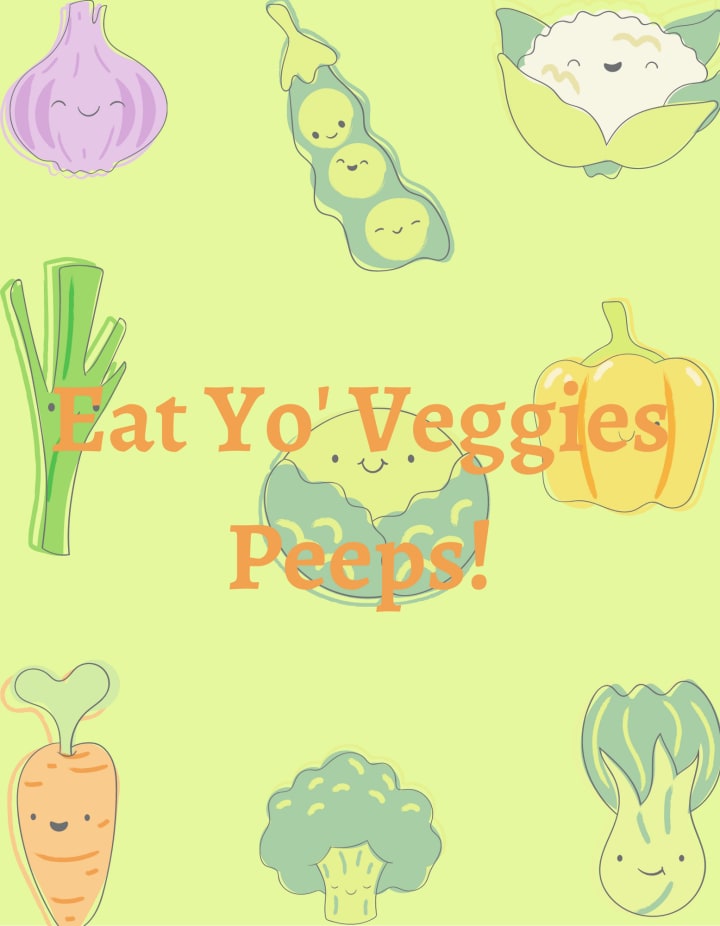
#vegetariansandvegansunite #eattolive #liveandlearn #healthforlife #mothernatureisthebest #behappy #behealthy #eat #breathe #love #smile #letfoodbethymedicine
About the Creator
Talia Devora
Poetess, visual artist and lifestyle/quiz writer! My pastimes include reading, sleeping, gaming, music, fitness, etc! Be yourselves, be kind and value life! Let's connect and be friends!
My IG accounts: @tdwrites24 & @tdcreates97




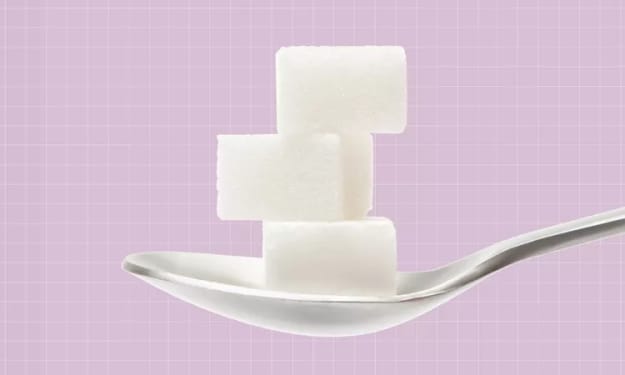

Comments
There are no comments for this story
Be the first to respond and start the conversation.